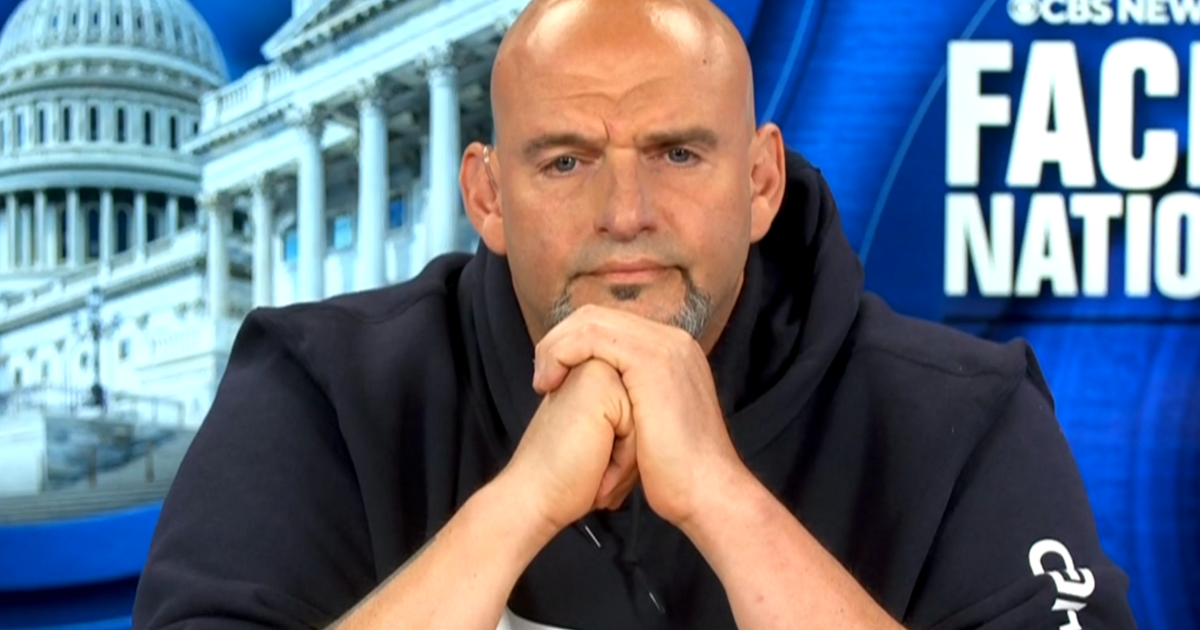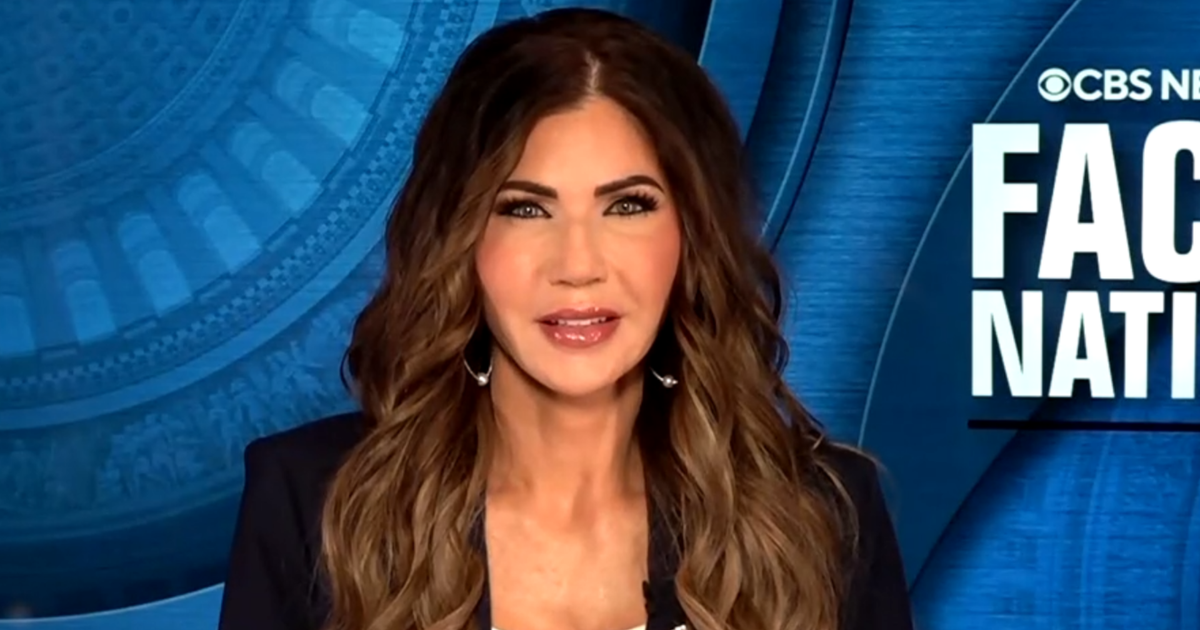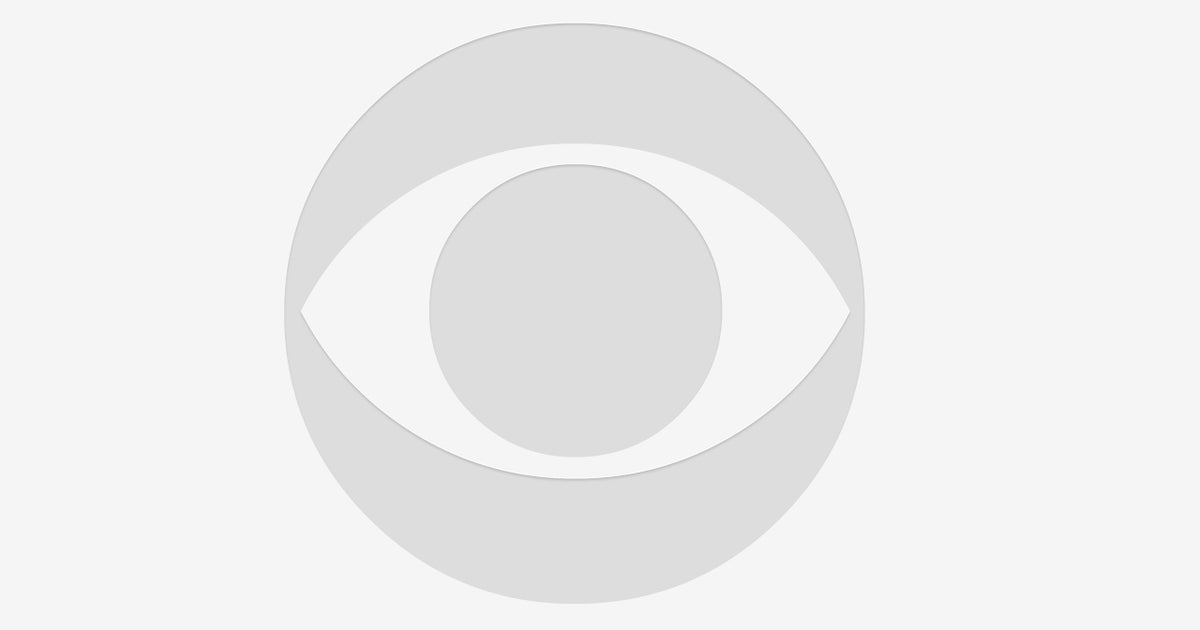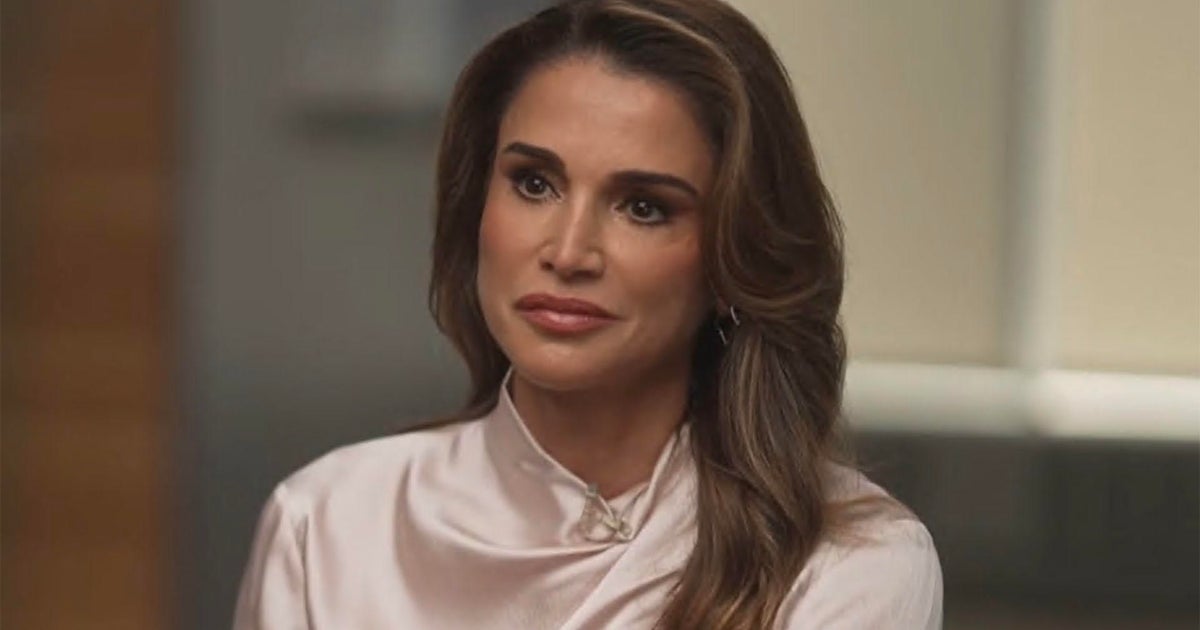Transcript: Scott Gottlieb discusses coronavirus on "Face the Nation," April 25, 2021
The following is a transcript of an interview with former FDA Commissioner Scott Gottlieb that aired April 25, 2021, on "Face the Nation."
JOHN DICKERSON: We go now to former FDA commissioner Dr. Scott Gottlieb. He sits on the board of Pfizer as well as Illumina, and he joins us from Westport, Connecticut. Good morning to you.
DOCTOR SCOTT GOTTLIEB: Good morning.
JOHN DICKERSON: Dr. Gottlieb, the CDC director this week said that there was a drop in cases that suggested a hopeful trend. Do you share that hope?
DR. GOTTLIEB: Yeah, I think we are seeing a hopeful trend across the country. Cases are clearly declining. The positivity rate is about 3.3% right now. Hospitalizations are falling as well, which is a good indication. And even in hard-hit areas like Michigan, which had late epidemics, late surges, you're seeing cases start to come down. I think whereas the past trends when we saw cases start to decline, we were somewhat skeptical because we knew a lot of those declines were a result of behavioral changes, people pulling back more, taking more precautions. And then as soon as we sort of let our guard down, we saw cases surge again. Right now, the declines that we're seeing, we can take to the bank. I think we could feel more assured because they're being driven by vaccinations and greater levels of population-wide immunity, not just from vaccination, but also from prior infection. There's been a lot of Americans who've had this infection and have a level of immunity from their prior disease.
JOHN DICKERSON: So when we hear numbers- what you're suggesting is kind of a mindset change in the way we process these numbers when they come in. What other ways should we be thinking in the vaccine world when we still heal- hear numbers of the kind we'd heard for the last year? How should our mindset change in the way we process these numbers?
DR. GOTTLIEB: Well, look, I think we need to think about the overall vulnerability of the population and not just the cases that we're accruing on a daily basis. The vulnerability of the population has been reduced substantially because of vaccination. A lot of older Americans and people who are most vulnerable to COVID, who are most likely to be hospitalized or succumb to the disease, have now been protected through vaccination and are going to be far less likely to have a bad outcome. So 10,000 cases right now is a lot different than 10,000 cases a year ago when the most vulnerable Americans had no protection from this disease. We might not get below a point this summer when we have much below 10,000 cases a day. If we sustain the current levels of testing, there's going to be outbreaks in summer camps. There's going to be sporadic infections. We'll have one to two hundred infections a day in most states, most large states in the country. But we need to look at those cases differently. They're going to probably represent much less disease, much less death, because most of- most of the most vulnerable Americans will have been protected through vaccination. So we need to look at these things differently. I think we should focus more on hospitalizations as well. That's probably going to be the best measure of the overall impact of coronavirus on society.
JOHN DICKERSON: So if we should change our mindset a little, should we change the policies and practices that have been put in place by the states and the federal government on- on how we behave?
DR. GOTTLIEB: Well, look, I think a lot of the sacrifices we've made, and Americans have made substantial sacrifices over the last year, the things that we've asked people to do as public health officials were based on mutual consent, that people understood we were doing these things to try to protect the public. But as the situation improved, we were going to pull them back. And I think oftentimes a mistake we make is that we're quicker to implement these precautions than we are to lift them, because we're worried that once we lift them, we won't be able to reimplement them. I think we need to lean more aggressively forward and look at ways to try to relax some of the provisions that don't really make as much sense anymore. And probably the ones that we should be looking at the hardest are things done outside. I think we should be thinking about lifting mask- mask ordinances outside. I think we should be thinking about lifting limits on gatherings outside and trying to encourage people to go outside now that the weather is warming, take more activities outside in the face of declining risk overall. Again, I think that these declines we're seeing are really locked in at this point. So I don't think we need to be as worried that as we take our foot off the brake, things are going to surge again. People by and large, are engaging in a lot of activity. B.1.1.7 is epidemic across the country and we're still not seeing big surges. And that's a good indication.
JOHN DICKERSON: Can you give me your thoughts on vaccine hesitancy? There are concerns. How concerned are you about those who don't want to get the vaccine, including the second shot some people aren't doing? How concerned are you and what do you think can be done?
DR. GOTTLIEB: Yes, I- I think we need to break this down a little bit more. There are people who are clearly vaccine hesitant, people who, you know, are skeptical of vaccines, worry about the safety of vaccines. I think some portion of those people we can reach with better education in getting the vaccines into hands of people that they trust, like their local physicians, to try to encourage them to get vaccinated. But I think that there's also a large group of people for whom getting a vaccine still isn't convenient, people who work all day take care of families at night. For those individuals, we need to create more 24/7 vaccination sites. We need to guarantee them they're not going to wait more than 10 minutes when they go to get vaccinated. We need to encourage businesses to give people time off to get vaccinated. And then there is just softer demand. There's marginal customers like there are for any other product. There's people who say, you know, I'll get vaccinated, but they're not as anxious to get vaccinated as those 65 and 70-year-olds who lined up back in January. And for those individuals, we need to market it more aggressively to them. We need to put vaccines in the hands of pharmacies that know how to market health care products to individuals, maybe pay pharmacies a little more over the next couple of months, give them an extra $20 bonus to get people vaccinated, do things to try to create incentives in the market to get more information out to those marginal customers. We will get more people vaccinated, but the rate of vaccination is going to slow. That's not a bad thing. We just need to recognize it.
JOHN DICKERSON: 20 seconds left. Your view on stopping the pause on the Johnson & Johnson vaccination.
DR. GOTTLIEB: Well, look, they- they- I think they should have stopped the pause in the Johnson & Johnson vaccination based on what we know. This is a safe and effective vaccine. It has a place in public health right now. They paused it to try to see if there was going to be more cases that surfaced. They surfaced some additional cases, but not a lot. I think the risk-benefit of this vaccine looks favorable.
JOHN DICKERSON: All right, Dr. Gottlieb, sorry to cut you off. We're out of time. Thanks so much. And we'll be back in a moment.



